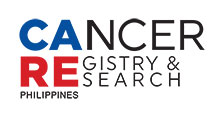Yes, all patients need to be informed that the hospital maintains a cancer registry database that contains personal information about those diagnosed with and or treated for cancer within the hospital. They must also be informed that with the passing of the National Integrated Cancer Control Act (NICCA) on August 2019, the Department of Health (DOH) must be notified of all persons diagnosed with childhood and adult malignancies. Notification of the DOH is done thru the hospital cancer registry database, the existence of which is required by the Health Facilities and Services Regulatory Bureau of the DOH. It is highly recommended that all CARE Philippines hospitals contain this information in its general admission and cancer treatment consent forms.Cancer patients can opt out of the registry by putting in writing their opt out preference, signing and dating such written statement.
The hospital IT Office, working together with the Tumor Registry Office, sets up the security measures of all hospital computer intranet data, including that of the CARE database.
CARE Philippines is responsible for the security of the CARE Central Database.
At this point in time, an individual patient does not have access to his or her own data, but he or she can participate in the proper maintenance of the registry by consenting to be called by the CARE Registrar once every 6 months. We are working on eventually allowing a patient access to his or own data and updating it himself or herself at least once every six.
The duplication of data will be recognized and red-flagged in the central database. The CARE Database Administrator(s) will look at the detailed data entry of these flagged patients and will decide if these are from the same patient or not. The summary data presented to the public in the CARE Website will consider these duplicate entries (even if from different hospitals) as only one patient.
The data in the central server can be seen by both Beatrice Tiangco and Ric Parma only, who are the CARE Database Administrators.
The data in the central server that is not seen in the CARE website cannot be accessed by researchers. Access to individual hospital data will be up to the discretion of the individual hospital’s Cancer Registry Administrator, but it is highly recommended that this be allowed only if the hospital’s IRB has written approval of the study protocol and if said protocol is compliant with the Data Privacy Act.
Otherwise known as, “The National Integrated Cancer Control Act”, it is a new law signed by President Duterte on 14 February 2019. It forms the framework for a holistic approach to the whole continuum of cancer care – from awareness to end-of-life care, inclusive of every aspect of cancer management in between. There are also sections in the law that touch on collaborative efforts with the academe, and about cancer research. The relevant Sections of the law pertaining to Cancer Registry are Sections 28 (population-based registry) and 29 (hospital-based registry).
